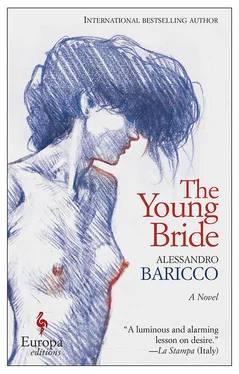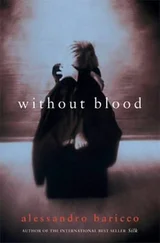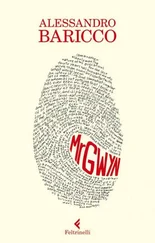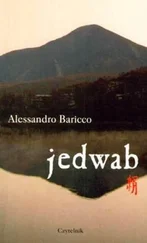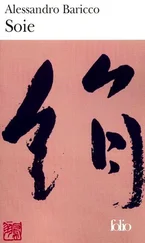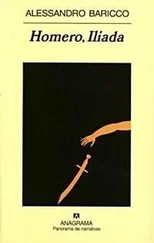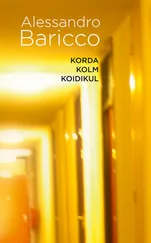They look nice, said the Father, indicating the long red gloves.
The young Bride adjusted a fold of her dress.
They’re not mine, she said.
Too bad. Shall we go?
They returned on the train, again alone, sitting opposite each other, in the light of a long sunset, and, thinking back on it now, I can recall in detail, despite all the years that have passed, the purpose with which, my back straight, not even leaning against the seat, I was proud of fighting an immense weariness. It was pride, but of a type that the blood generates only in youth — coupling it, mistakenly, with weakness. The jolting of the train kept me awake, along with the suspicion that a defining infamy had, all in one day, been poured into the hollow of my life, as into a cup that now seemed impossible to empty: I managed to tip it just enough to see the opaque liquid of shame drain from the edges — I felt it running slowly, without knowing what to think. If I had been clearheaded, if I had had a thousand lives more, I would have known instead that that strange day, of confessions and bizarre events, had offered a lesson that took me years, and many mistakes, to learn. In every detail, what I had done in those hours — and heard, and said, and seen — was teaching me that it’s bodies that dictate life: the rest is a result. I couldn’t believe it, at that moment, because, like every young person, I expected something more complex, or sophisticated. But now I don’t know any story, mine or anyone else’s, that did not begin in the animal movement of a body — an inclination, a wound, an obliqueness, at times a brilliant move, often obscene instincts that came from far away. It’s all written there already. The thoughts come afterward, and are always a belated map, to which, out of convention and weariness, we attribute some precision. Probably it was what the Father intended to explain to me, with the apparently absurd act of taking a girl to a brothel. At the distance of years, I have to acknowledge in him a courageous exactness. He wanted to take me to a place where it was impossible to protect oneself from the truth — and inevitable to hear it. He had to tell me that the weave of destinies that the loom of our families had worked on for years had been made with a primitive, animal thread. And that, however we might strive to seek more elegant or artificial explanations, for all of us our origin was written in our bodies, in characters engraved with fire — whether it was the imprecision of a heart, the scandal of reckless beauty, or the brutal necessity of desire. Thus we live in the illusion that we are putting back in order what the humiliating or marvelous act of a body has thrown into disarray. In a final marvelous or humiliating act of the body, we die. All the rest is a useless dance, made memorable by wonderful dancers. But I know it now, I didn’t know it then — and on the train I was too tired to understand it, or proud, or frightened, I don’t know. I sat with my back straight and that was everything. I looked at the Father: the features of a good-natured man, a secondary character, had returned — he sat with his hands entwined, resting in his lap, and stared at them. Every so often, he raised his eyes to the window, but briefly. Then he went back to staring at his hands. A performance. The young Bride realized that she found that man, suddenly, irresistible, putting together what she had learned about him and the unassuming figure now facing her. She noted for the first time the Father’s spectacular ability to hide the strength he had available, the illusions he was capable of, and the boundless ambition to which he was devoting his life. A professional gambler, who won with invisible cards. A fantastic cardsharp. She saw in him a beauty that not for an instant had she suspected, before that day. She liked that solitude, in the moving train, and the fact of having been the two of them , for a day. She was eighteen: she got up, went to sit next to him, and when she realized that he wouldn’t stop staring at his hands, she leaned her head on his shoulder and fell asleep.
The Father interpreted it as a gesture of summing up, the compendium of everything that the young Bride might have thought about what she had learned that day. It seemed to him even to have a particular, unexpected precision. So he let her sleep and went back to what he was doing, staring at his hands. He was considering the actions that had been accomplished that day, drawing from them the placid satisfaction of a general who, in altering the disposition of troops on the battlefield, had obtained an arrangement more suited to the terrain and less vulnerable to the inventions of the enemy. There were naturally some details to work out, first among them finding the Son who had disappeared, but the harvest of that day of grand maneuvers inclined him to optimism. Having reached these conclusions, he stopped staring at his hands and, looking out the window, allowed himself a ritual of the mind that he had been unable to perform for some time: reviewing his own certainties. He had a number, and of different types. He mixed them up with childish pleasure. He started from an idea, about which he had no doubts, that in summer it was advisable to use shaving cream perfumed with citrus. Then he continued with the conviction, developed over the years, that cashmere does not in fact exist, and continued by repeating the obvious evidence of the nonexistence of God. When he realized that it was time to get off, he jumped to the last certainty on the list, because it was the one that he cared about most, the only one that he had never confided to anyone, and for which he reserved the most heroic part of himself. He never thought it without uttering it aloud.
I won’t die at night, I will die in the light of the sun.
The young Bride raised her head from his shoulder, coming from distant dreams.
Did you say something?
That we have to get off, signorina.
When they left the station the young Bride still hadn’t said anything, caught in the spiderweb of a complicated awakening. Modesto had come to get them in a carriage and he drove them home, noting the little news of the day with a shade of lightness in his voice: it was standard in the Family, in fact, for any return, even the most predictable, to bring joy to manners and relief to gestures.
Only when they had got out of the carriage, and just a few steps divided them from the threshold of the house, the young Bride took the Father by the arm and stopped. Infallible, Modesto continued, without turning, and disappeared into a side door. The young Bride clutched the Father’s arm but without shifting her gaze from the broad pale façade that was about to swallow them up.
And now? she asked.
The Father was unruffled.
We’ll do what has to be done, he said.
Which is?
What a question. We’ll go on vacation, my dear.
Not when I wrote it but days later when, lying on the sofa, I reread it, I noticed that sentence I had written, and started looking at it more closely. If you wanted, you could even try to refine it a bit. For example, It will be day, in the light of the sun, when I die sounded more sonorous. Also, I wish to die in the light of the sun, and I will might work. When it’s like that I try to read the sentence out loud — after all, the Father said it out loud — and repeating it, then, I listened to it, and suddenly it was as if I hadn’t written it but received it, right at that moment, as if it had drifted here from some unknown distance. It happens. The sound was clear, the posture correct. I will not die at night, I will die in the light of the sun . It didn’t come from me, it was there, that’s all: so I realized that it said something that I wouldn’t have been able to formulate but that I now recognized with assurance. It had to do with me. I read it again and understood, in all simplicity, that what was left for me to desire, since my bewilderment is a given, was in fact to die in the light of the sun, although die was undoubtedly a rather hasty term — let’s say disappear . But not at night, that was now clear to me. In the light of the sun. I was lying on the sofa, I repeat, and was engaged in the only activity that I’ve been able to do lately with confidence and with control, that is to say, write a book: but suddenly I was no longer writing, I was living —the very thing that I’ve neglected to do for some time, or at least whenever it’s possible — if living is the name of that rapid return to oneself that I experienced, without warning, while, lying on the sofa, I was reading aloud a sentence that I had written some days earlier and that now appeared to me, as if coming from afar, in the convincing light of a voice that was no longer mine.
Читать дальше
